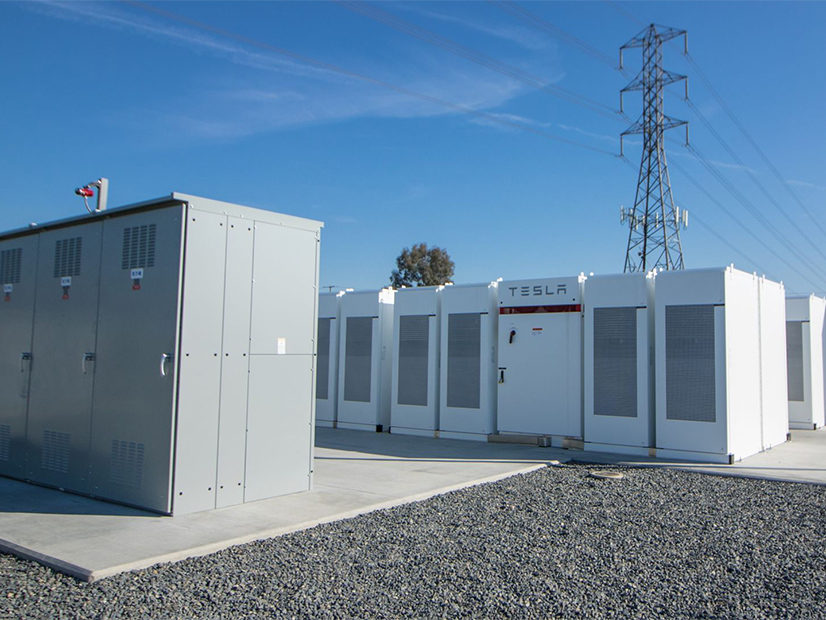CAISO’s Board of Governors on Thursday approved measures to help ensure summer reliability, including extending for a third year a requirement that utility-scale storage batteries maintain a minimum state of charge during critical conditions.
The requirement “applies during very limited circumstances where we experience the most constrained conditions on the system,” such as during an extreme heat wave last September that brought CAISO to the brink of ordering rolling blackouts, said Anna McKenna, the ISO’s vice president of market policy and performance. (See California Runs on Fumes but Avoids Blackouts.)
In a memo to the board, McKenna and other CAISO staff members said the storage constraint “mitigates the risk storage resources may be unable to meet day-ahead discharge schedules in the real-time market because they were either insufficiently charged or discharged prematurely, leaving them unable to meet their day-ahead schedules for later hours when their energy may be essential to maintain reliability.”
The requirement was intended to be temporary when it was adopted in April 2021, following the rolling blackouts of August 2020. CAISO decided to extend it despite opposition from some stakeholders, primarily storage operators who said it puts them at a disadvantage when demand and prices are highest.
The ISO intends to replace the minimum state of charge constraint with a “more comprehensive set of tools” that the Board of Governors approved in December, but the software for its planned system upgrade is not yet ready, the staff memo said.
“These more comprehensive sets of tools, when implemented, will provide ISO operators with enhanced state of charge visibility and control via exceptional dispatch functionality,” it said. “These enhancements also provide opportunity cost compensation for resources that are exceptionally dispatched to hold state of charge.”
CAISO management had originally proposed extending the minimum state of charge requirement through September 2024 to allow for unanticipated delays in software development. But it pulled back on that plan because of stakeholder concerns and set Sept. 30, 2023, as the sunset date to ensure it “expires even in the event of implementation delays,” the memo said.
Capacity Procurement Mechanism
The Board of Governors also approved updates to the ISO’s capacity procurement mechanism (CPM) that it uses to purchase electricity to head off shortfalls during “significant events” such as summer heat waves.
The changes are “limited but necessary for us to access capacity over the summer that may be needed to backstop should we be not sufficient with the resource adequacy capacity that we have,” McKenna told the board Thursday.
CAISO ran into problems using its “backstop” CPM to find and procure capacity during summer heat waves in 2020 and 2021, partly because of its own rules, a staff memo said.
To fix those issues, CAISO management proposed four operational improvements, including two changes to its rules to help the ISO buy electricity that is “not contracted for during a significant event,” a staff memo said.
One change would let the ISO adjust the volume in megawatts of CPM resources “if the designated capacity already is committed and shown to the ISO as resource adequacy capacity.”
Another gives resource scheduling coordinators flexibility to designate resources for a significant-event CPM for less than 30 days, which has been the minimum term.
“Because of this rule, a resource scheduling coordinator may have to reject a mid-month significant event CPM designation because the designated capacity has an existing commitment or is unavailable for the following month,” the memo said. “This existing minimum term rule has prevented the ISO from accessing immediately needed and immediately available capacity.”



